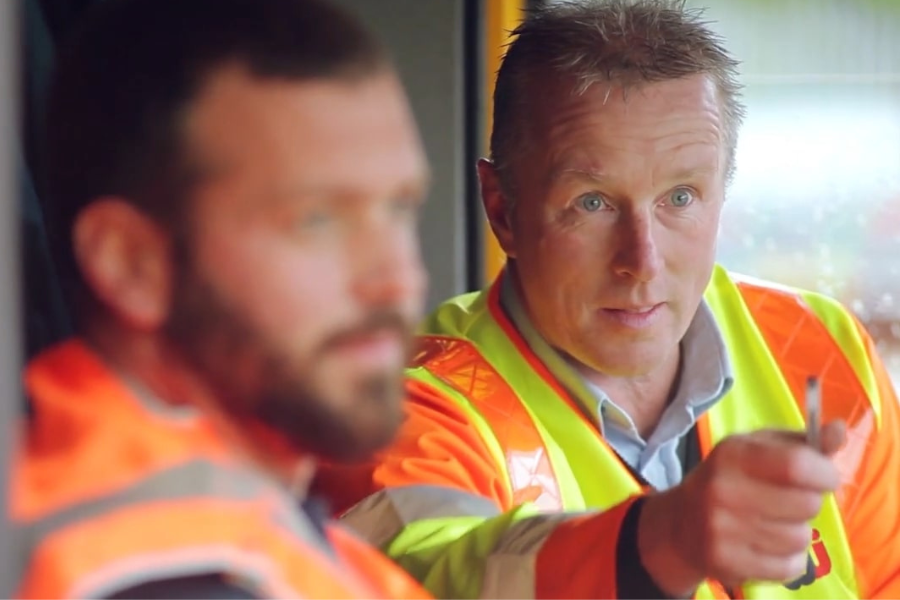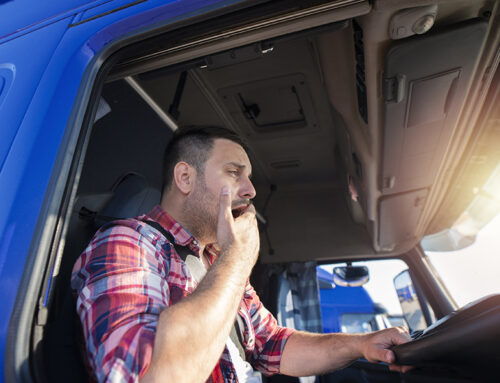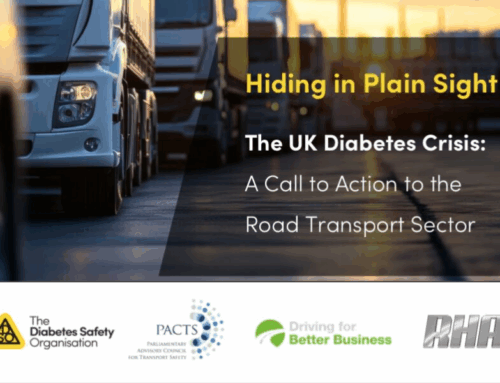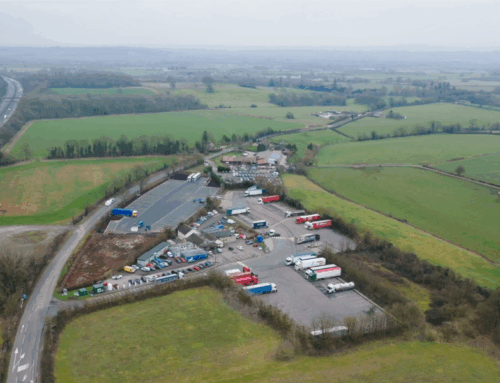Driver fitness – safe, healthy drivers
WJ Group believes that safe, healthy, well-adjusted workers are more productive and more likely to stay with the organisation. We talk to Sustainability Director Paul Aldridge about their concept that your job should be good for you.
Health, safety and productivity go hand says WJ Group’s sustainability director Paul Aldridge. WJ Group is one of the UK’s leading road safety and highway maintenance businesses, specialising in delivering road markings, road studs, high friction and coloured safety surfacing, and many other road surface safety solutions.
It has over 650 employees, and a fleet of more than 400 vehicles, across 13 depots and multiple business interests. WJ Group employees install road markings in communities across the UK, and as such their daily activities make them vulnerable to specific risks, including but not limited to:
• Vehicular activity
• Abuse from the public
• Air pollution
• Musculo-skeletal injury
• Hazards of working with hot materials
They also face all the normal strains of modern life, and WJ Group goes further than most employers in trying to mitigate the effects of these strains upon its workers.
WJ wellness provision for drivers
The first and very broad category of ‘wellness provision’ is of course WJ’s extensive commitment to road safety, which is detailed in its Driving for Better Business case study.
It recognises that its employees are vulnerable road users while working on the roads and does everything it can to mitigate the risk presented by its own vehicles to both employees and the public.
It also spends a lot of time and effort working with communities to encourage cooperation with its teams and safe driving around them. Health and safety is a priority, as the work frequently involves the use of hot materials. WJ Group builds its own vehicles and so well-being, and ergonomic systems and practices, are designed in.
• Manual handling is minimised by using elevator systems.
• Working at height protection is built into all vehicles
• Splash guards and specially designed buckets to prevent splashes of, or inadvertent contact with, hot materials
• There are interlocks on moving parts.
• Its safety system SOS allows employees to suggest safety improvements. These suggestions are assessed by the safety team and vehicle designers, and if approved can go straight into production.
• Specifically designed and manufactured PPE also minimises risk, not least by making employees more visible to traffic, with photoluminescent strips that glow in the dark and reflective strips which work when light is shone on them.
What if your job was good for you?
WJ has taken the innovative approach of reframing the whole question of occupational health and safety. Instead of only identifying and mitigating risk, it poses the question: What if your job was good for you? Work should be an exercise in well-being, not simply about avoiding injury. The company encourages workers to not only prioritise their physical and mental well-being but to engage in the wide array of resources the company provides.
Fitness
Resources on physical fitness, diet and hydration. Good quality sleep, food and hydration levels are essential to being productive. Conversely, dehydration, fatigue and poor food can lower performance and cause drowsiness or inattention, which in turn can cause injuries.
The company promotes healthy diets through company communications, such as the drivers’ handbook, updates on its Yammer feed and a ‘What’s Up’ campaign. It has also run talks at annual training days.
The company nurse discusses healthy diets as part of occupational health assessments. These assessments are conducted on a three year cycle or annually for anyone under 21, over 60 or who has an existing health condition.
“It’s an excellent way to identify problems for people and in many cases has helped individuals get an early diagnosis,” says Paul.
Eyesight
The company encourages all staff to have regular eye checks, with all drivers being given six- monthly checks. Eye problems can be an important indicator for other health conditions, so regular checks with an optician are essential for more than just being able to see clearly. Paul says this policy has led to the diagnosis of cataracts in many employees, which could then be treated.
Finance
WJ Group provides access to a financial planner in order to ensure financial security. Paul says money is often a fundamental stress and a source of discord and anxiety. Access to independent help enables employees to solve problems and ensure their financial safety.
Mental health
The company provides a counsellor and has a team of mental health first aiders which staff can turn to in confidence. Red Flag Mental Health Awareness courses are offered to all staff and have been well received. It also runs an employee assistance programme (EAP).
It pays particular attention to the ‘diversity and ability’ concept of understanding the different ways of learning or working which may be required by neurodivergent team members, or those suffering from mental health difficulties. Approximately 12% of WJ Group’s workforce has declared a disability, often relating to mental health.
“We are very proud of this,” says Paul. “Proud that we have put facilities in place for people to begin to deal with their problems, but also proud that they felt safe to declare a disability, even through the anonymity of a survey. 12% may be reflective of the national statistics, but it is extremely high in our industry where there is a tendency for people to feel unable to speak out.”
Drugs and alcohol
Drugs and alcohol testing is conducted for every employee on joining the firm, and repeated with cause. Operational staff are also tested twice a year. It has a team of people qualified to carry out drug and alcohol testing.
Social well-being
WJ Group believes in making its teams as inclusive as possible, emphasising equality, diversity and respect for difference. Its company values also emphasise that everyone must be treated with respect, fairness and integrity. It tries to provide opportunities to engage with under-represented groups, and is actively trying to boost the numbers of women and those with disabilities in its operational roles.
Studies have shown that diverse and pan-societal workforces perform better, have a wider talent pool, are more innovative because they draw ideas from a wider range of people, and have higher employee engagement levels. However, the benefits do not stop there. Inclusive workforces lead to a more inclusive society and that creates what the government refers to as a ‘triple gain’ – better mental health, improved longevity and greater productivity.
Paul Aldridge is on the national steering committee for ‘Fairness, Inclusion and Respect in Construction’, and he says it has a “really great programme designed to improve the lives of employees and the opportunities for all in our industry, where people can bring their whole selves to work without fear of discrimination”.
Driver fitness – reframing the question
WJ Group believes that by reframing the role of the job as a health-supporting asset and providing the resources to make that true, it will have a happier, healthier and safer workforce. It will also have better employee retention, a lower safety incident rate and be more attractive as an employer to the widest possible pool of candidates.






